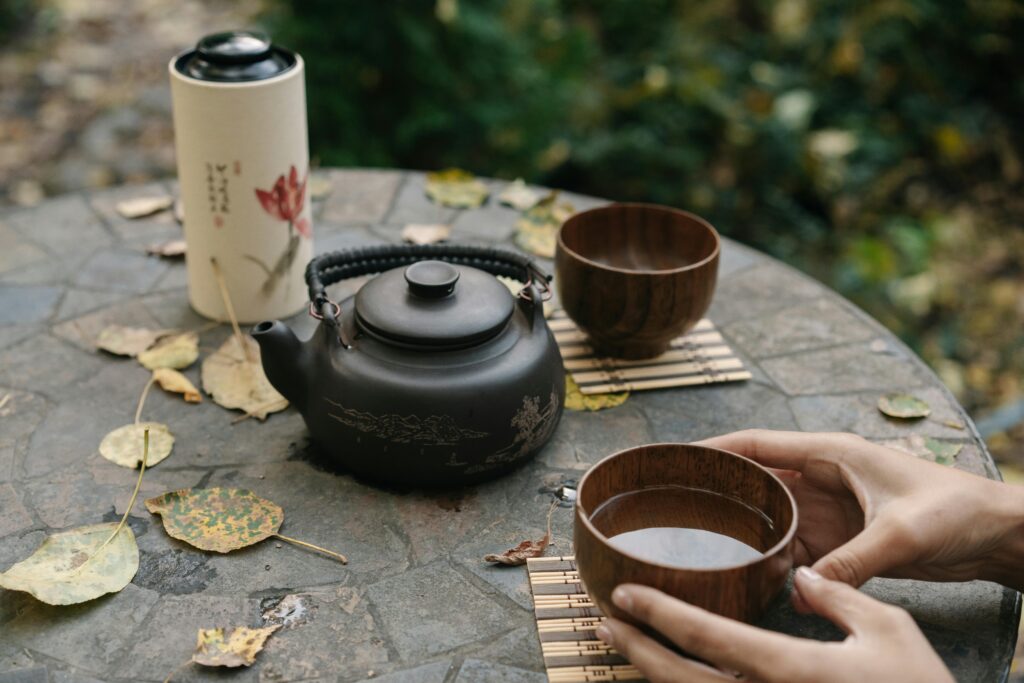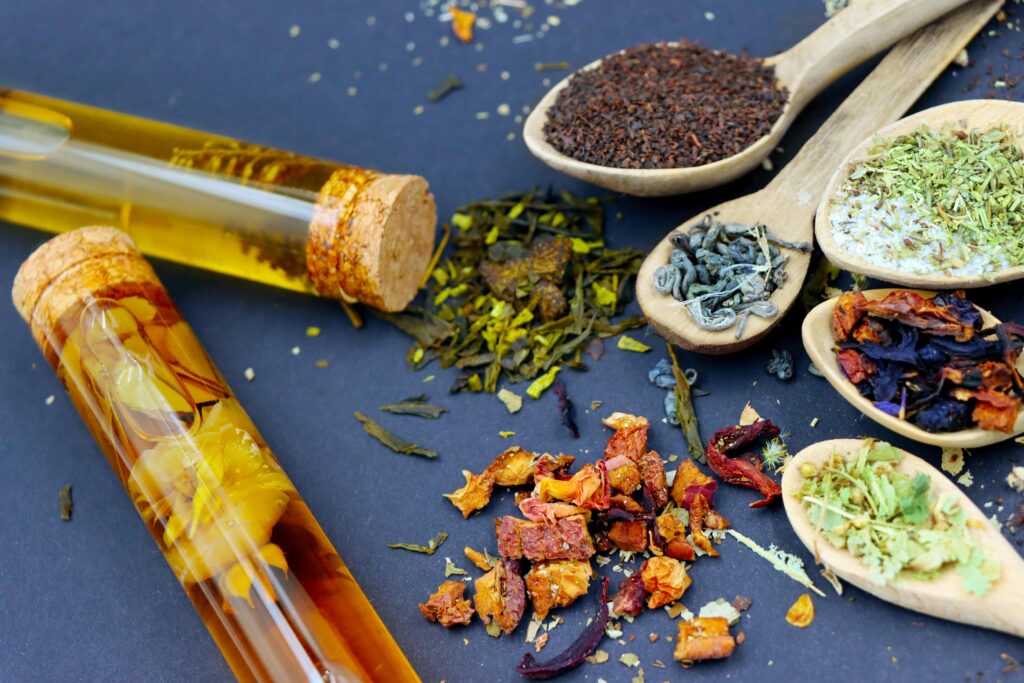Anxiety is one of the most common mental health conditions worldwide, affecting millions of people across different age groups. While prescription medications such as benzodiazepines and SSRIs are often prescribed to manage symptoms, many individuals are seeking natural remedies. Among the most popular options are herbal teas, which have been used for centuries to promote relaxation, improve sleep, and reduce stress.
But the big question remains: Can herbal teas actually replace anti-anxiety medication—or are they simply complementary remedies? Let’s explore what science says.
Understanding Anxiety and Its Conventional Treatments
What Is Anxiety? Symptoms and Causes
Anxiety is more than just occasional worry. It can manifest as persistent feelings of fear, unease, and nervousness. Symptoms include rapid heartbeat, restlessness, muscle tension, and difficulty concentrating. Causes range from genetics and brain chemistry to stressful life events and trauma.
Anti-Anxiety Medications: Types and How They Work
Doctors commonly prescribe:
- Benzodiazepines (e.g., Xanax, Valium) – provide quick relief by enhancing calming neurotransmitters.
- SSRIs and SNRIs (e.g., Prozac, Zoloft) – work on serotonin levels to manage long-term anxiety.
- Beta-blockers – reduce physical symptoms like trembling and sweating.
Side Effects and Risks of Prescription Medications
While effective, these drugs can cause drowsiness, dependency, withdrawal symptoms, and reduced effectiveness over time. This is why many people turn to herbal teas as a gentler alternative.

Herbal Teas: Natural Soothing Remedies Through History
Chamomile Tea: The Classic Stress Reliever
Chamomile has been traditionally used for calming nerves and improving sleep. Studies suggest it may reduce generalized anxiety disorder (GAD) symptoms.
Green Tea and L-Theanine: A Focused Calm
Green tea contains L-theanine, an amino acid known for promoting relaxation without drowsiness. It may also improve attention while reducing stress.
Lavender Tea: Aromatherapy in a Cup
Lavender isn’t just for essential oils. Drinking lavender tea may help calm the nervous system and reduce restlessness, especially before bedtime.
Valerian Root Tea: Nature’s Sedative
Valerian root is often referred to as a natural tranquilizer. It’s frequently studied for its potential to aid sleep and reduce mild anxiety.
Lemon Balm Tea: Gentle Anxiety Support
Lemon balm has been shown to reduce mild stress and anxiety, often used in combination with other calming herbs.
What Science Says About Herbal Teas and Anxiety
Clinical Studies on Chamomile and Anxiety
A 2016 study published in Phytomedicine found chamomile extract significantly reduced symptoms in patients with generalized anxiety disorder.
L-Theanine and Cognitive Stress Reduction
Research indicates L-theanine promotes alpha brain waves, associated with calm alertness. Regular consumption may reduce stress-induced cortisol levels.
Evidence for Lavender and Sleep-Related Anxiety
Studies on lavender oil capsules show positive effects on anxiety. While lavender tea hasn’t been as widely studied, many experts believe it offers similar benefits through its calming aroma and compounds.
The Role of Placebo Effect in Herbal Tea Benefits
Interestingly, part of the soothing effect may come from the ritual of making and drinking tea itself. Warm beverages encourage relaxation, which may amplify the tea’s natural compounds.
Comparing Herbal Teas vs. Anti-Anxiety Medications
Speed of Action and Effectiveness
- Medications: Provide rapid and strong relief, especially for severe anxiety.
- Herbal Teas: Work gradually, better suited for mild to moderate stress.
Safety, Side Effects, and Dependency Risks
- Medications: Risk of dependence, drowsiness, and withdrawal symptoms.
- Herbal Teas: Generally safe but may interact with medications (e.g., valerian with sedatives).
Cost and Accessibility
- Prescription medications can be expensive.
- Herbal teas are affordable, accessible, and can be used daily without major risks.
Can Herbal Teas Fully Replace Medication? A Balanced View
Cases Where Herbal Teas May Help
- Mild stress, sleep disturbances, and daily relaxation support.
- Complementary therapy alongside mindfulness or yoga.
When Medication Remains Essential
- Severe anxiety disorders, panic attacks, or cases requiring medical supervision.
- When anxiety disrupts work, relationships, or daily functioning.
Integrative Approaches: Combining Teas with Therapy
Many experts recommend combining herbal teas with cognitive-behavioral therapy (CBT), meditation, or prescribed medication for best results.
FAQs on Herbal Teas and Anxiety
1. Can herbal teas cure anxiety completely?
No, herbal teas may ease symptoms but cannot cure anxiety disorders on their own.
2. How often should I drink herbal teas for anxiety?
1–3 cups daily is common, but consult a doctor if you’re on medication.
3. Are herbal teas safe during pregnancy?
Some teas like chamomile may not be safe during pregnancy. Always consult a healthcare provider.
4. Can I combine different herbal teas for better results?
Yes, blends like chamomile + lemon balm can enhance relaxation.
5. Do herbal teas interact with medications?
Yes, valerian and chamomile may interact with sedatives or blood thinners.
6. Which herbal tea is most effective for anxiety?
Chamomile and green tea (L-theanine) have the strongest scientific backing.
Conclusion: Finding Balance in Anxiety Management
So, can herbal teas replace anti-anxiety medication? The answer is nuanced. While teas like chamomile, green tea, and lavender show scientific promise in reducing stress and mild anxiety, they are not a substitute for prescription medication in severe cases. Instead, herbal teas can be viewed as a safe, affordable, and supportive addition to a broader anxiety management plan that may include therapy, lifestyle changes, and medication when necessary.
For those struggling with stress and mild anxiety, a warm cup of tea may not just be comforting—it may also be scientifically beneficial.
For further reading on anxiety treatments, visit the National Institute of Mental Health (NIMH).
read more:
